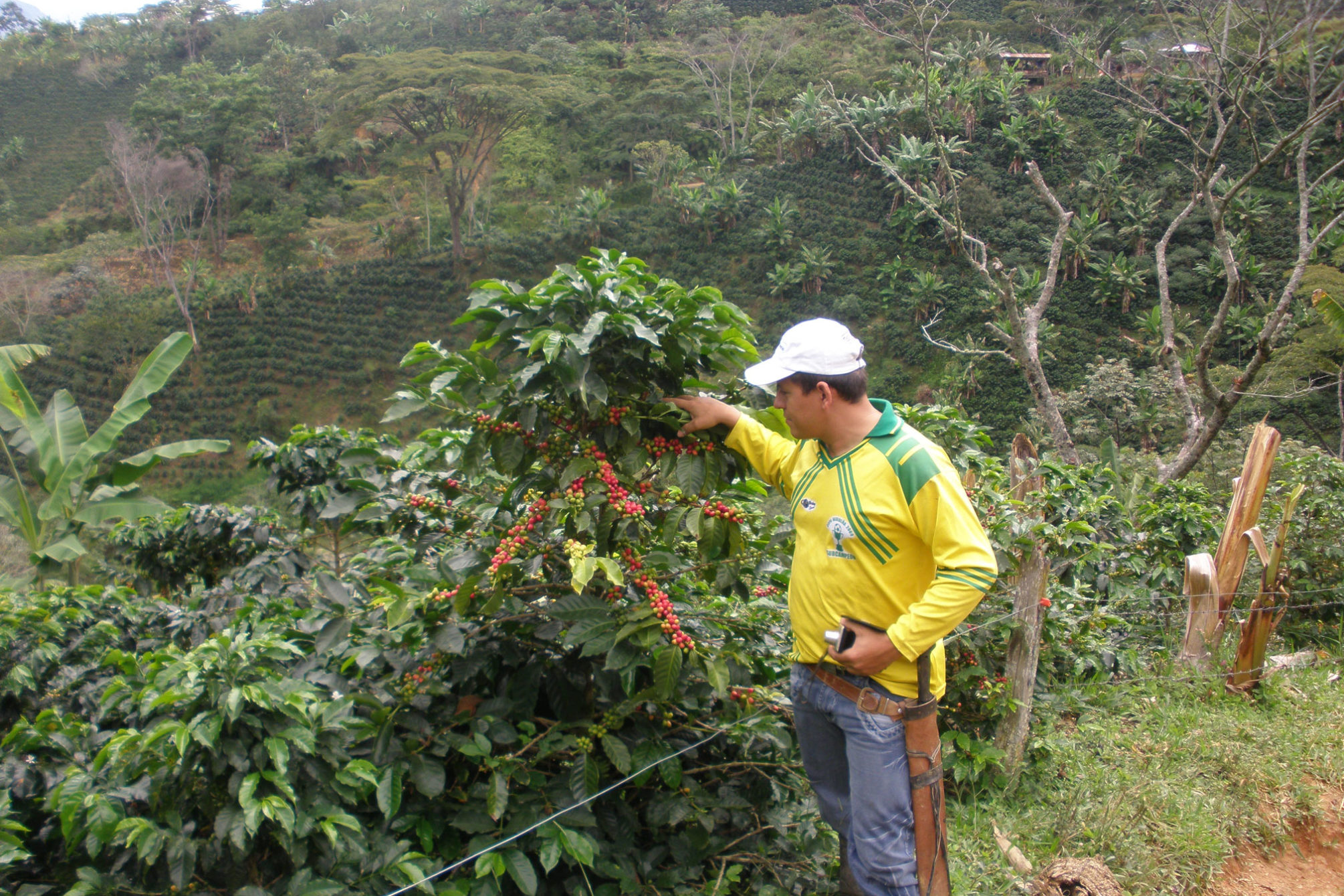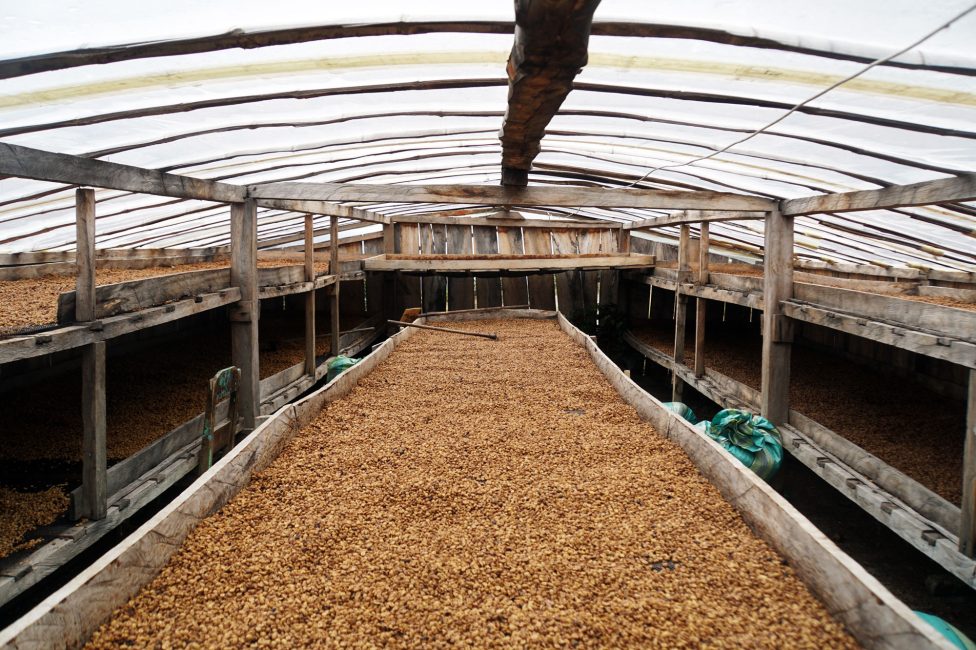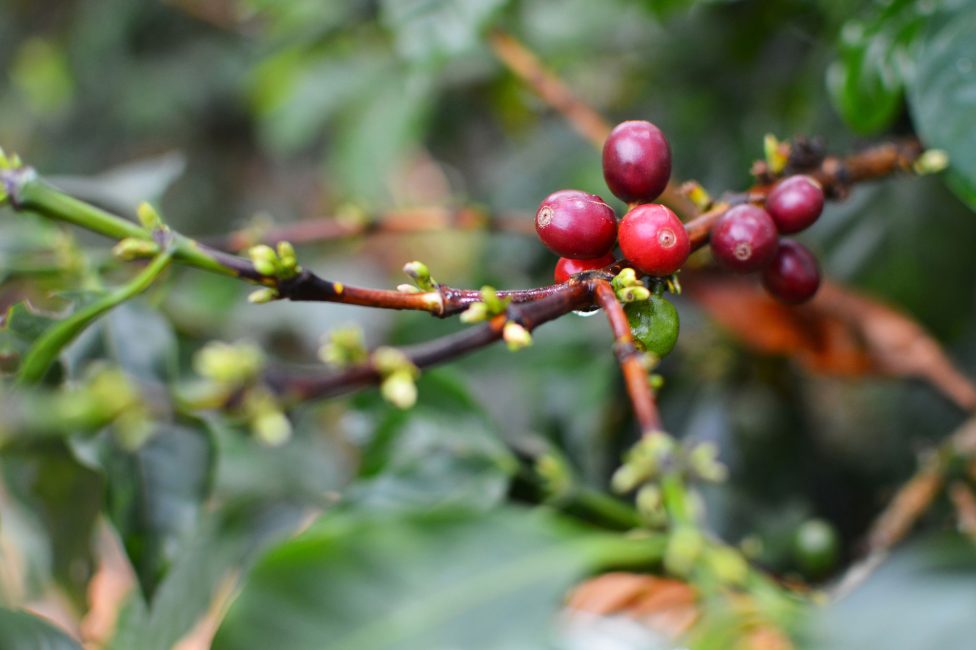Los Rosales
Rich, complex and vibrant with winey acidity and notes of peach, pink lady, and berries and a floral and honey finish.
Los Rosales is a small two hectare farm located in the village of Planadas, in the municipality of La Cumbre in the south of the Tolima growing region, which is in the center-west of Colombia. It sits at an elevation of 1,760m above sea level.
Los Rosales is owned by second generation coffee producer Edier Martinez (pictured above). Edier, 41, inherited the farm from his father, and lives there with his wife —who also works on the farm— and their two girls, Jailene and Mayra.
Edier was motivated to transform his father’s farm and change its focus to specialty coffee after being encouraged by his neighbors and friends who were also producing specialty coffee. When he took over the farm he renewed the coffee trees, and has been actively working to improve the quality of his coffee ever since. He has no regrets. “It’s the best thing I ever did,” he explains. He is now experimenting with different approaches to fermentation and learning how to cup and critically evaluate coffee quality.
LOS ROSALES & INCONEXUS
Edier, along with other farmers in the region, is supported by our export partner, InConexus. They work with small farms in Tolima to achieve the highest standards possible, with sustainability and quality at the forefront. InConexus play an important role in connecting tiny producers like Edier with buyers like MCM, encouraging long-term relationships to flourish. Their goal is to improve the economic, environmental, and social situation of their producing partners, whilst also increasing their quality, sustainability efforts, and inclusivity initiatives at a farm level.
By developing and nurturing partnerships throughout the supply chain, InConexus believes that entire communities can be empowered. Individual growers can be encouraged to become better business owners, which in turn will result in higher-quality coffees, improved market access and ultimately increased income and more sustainable and healthy livelihoods. We are proud to partner with InConexus and believe wholeheartedly in their mission. If the quality of Ediers coffee is any indication of the potential of coffees from this region, this partnership is truly making a difference.
ABOUT TOLIMA
Tolima has been very difficult to access due to its isolation and instability. For many years the region has been under the control of Colombia’s notorious rebel group —the FARC— and as a result it has been unsafe and violent. Since 2012, safe access to this region has been possible as a result of peace talks between the Colombian government and the rebels, and as a result some stunning coffees from small producers have been discovered mainly via cooperatives.
The word ‘Tolima’ comes from the local indigenous language and means a “river of snow or cloud”. The region sits on the Cordillera Central, in the middle of the three mountain ranges that provide a range of microclimates well-suited to high quality coffee production. Coffee is the leading agricultural activity in the region, followed by beans and cattle.
This coffee comes from the south of Tolima, from Planada —relatively new village that was established in 1966. The first groups to settle the area were from Antioquia and Huila, and as a result, coffee soon became an important crop in the area. Today Planadas is a bustling commercial centre, where local farmers in the foothills of the Cordillera Central grow all types of produce for sale and distribution. High elevations, warm days and cool nights along with young, healthy trees all contribute to the exceptional quality coffee from this region.
HOW THIS COFFEE WAS PROCESSED
This coffee was carefully handpicked and manually pulped at the farms ‘micro beneficio’ and then placed in a simple concrete fermentation tank for 17-18 hours, then dried carefully in a greenhouse with openings on both ends to allow airflow. This greenhouse has the dual advantage of protecting the parchment from rain and mist as it dries, and preventing condensation from dripping back onto the drying beans. These beds have adjustable walls to help with air flow and temperature control to ensure the coffee can dry slowly and evenly. Once dry, the coffee is rested in parchment until it is ready for export.
WHAT’S IN A NAME?
The name “Los Rosales” comes from the beautiful roses that are grown in the region, which infuse the air with beautiful floral and sweet scents. These floral notes are also found in this beautiful coffee which also has complex notes of peach, pink lady, and berries with a honey finish.


